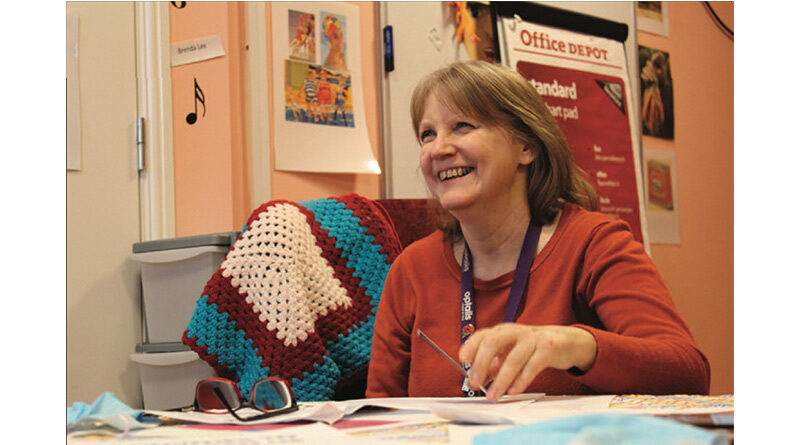Evolving Dementia Care in the Face of the Pandemic
By Belinda Dixon, Senior Dementia Care Advisor, Optalis (www.optalis.org)
Bio: Belinda is a dual qualified physical and mental health nurse, who has specialised in dementia for over 30 years. She has worked as a hospital ward nurse, community psychiatric nurse, dementia day centre manager and currently works as senior dementia care advisor, at Optalis.
Throughout the pandemic, we have seen a greater demand for the services offered by our dementia care advisors (DCA) team. As a specialist advice and information service, we support people with dementia and their families and carers, in the Windsor and Maidenhead area.
The team, employed by the adult social care provider, Optalis, and supported by the Better Care Fund (BCF), has become a well-known and respected part of the local dementia community. Our reputation is quickly spreading by word of mouth, thanks to those who have benefitted from the team’s input and expert care.
For people across the country, lockdown has limited opportunities for stimulating activities and social connectedness. For those living with dementia, this has resulted in people experiencing cognitive decline and worsening behavioural and psychological problems. In addition, many carers have reported feeling under mounting strain, due to reduced access to services and increased caregiving responsibilities.
As a team we’ve recognised that the disruption to people’s routine and social isolation was having an acute and detrimental impact on people living with dementia. An example is the story of Mrs Turner*, who was telephoning her son up to 40 times a day during the first lockdown, because her regular routine suddenly stopped. Without the benefits and needs of social interaction being met, people can become iso- lated, lonely, confused and disorientated and it can cause a premature decline in their Dementia.
Wanting to address this, we implemented new opportunities and adapted existing services to try to limit the negative impact on people with dementia and their families.
Two members of staff from day services were seconded to the team, creating capacity and enabling us to put their skills in providing stimulating activities to use. Therapy activity packs were created and shared with family carers, providing resources and ideas on how to keep busy and involved at home. When government guidelines permitted, the team also delivered 1:1 individualised therapy in people’s homes.
In Mrs Turner’s case, structured carer visits offered reassurance and reduced her anxiety. Activities provided stimulation for the brain, while the routine and company settled her behaviour and phone calls greatly reduced.
Prior to the pandemic our popular monthly dementia drop-in sessions were open to anyone. Various professionals and volunteers joined the DCA team in providing teaching, answering questions and joining discussions with those who attended. The pandemic forced a tempo- rary halt to these sessions, but we have now successfully moved to a virtual platform. We have also started delivering a range of therapy and activity sessions using video-calling technology. In addition, the phone- based support provided by the team ramped up significantly. Proactively making welfare checks and offering a listening ear to people, as needed.
As we begin, once more, to ease out of lockdown we will resume face-to-face visits and reintroduce group sessions as soon as it is safe to do so. However, we will continue to offer telephone support and connect with people online as a way to reach more people and improve accessibility.
Whilst the pandemic has presented the service with many challenges, it has also helped to highlight what really matters. Our focus this coming year will be to continue with plans to expand the service. This will include kickstarting two projects, which have been delayed due to COVID restrictions. We plan to set up groups specifically for younger people with dementia and their carers and work with the Asian community locally to increase awareness and provide support.
The pandemic has accelerated a new tailored approach, which shows there is a place for online therapy alongside other types of care in the community. Prior to Covid the use of technology was always an option, but underutilised. It has proven to be a lifeline for many and has opened a whole new way of communicating and providing therapy, but it is not suitable for everyone. Moving forward it will be an invaluable resource to enable inclusion for a wider harder to reach audience, giving people more choice and control. The hope is that this will prove to be a positive and lasting change for dementia care.

